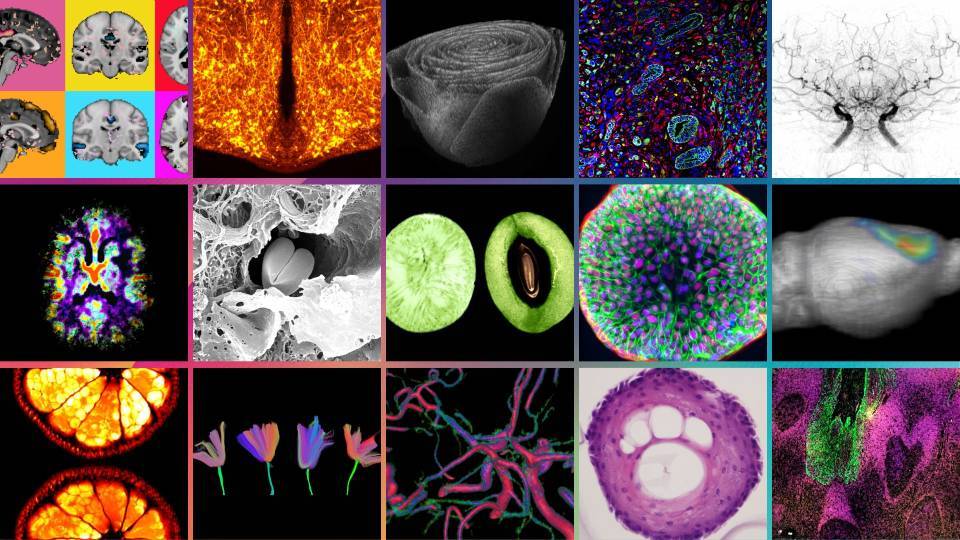This study was coordinated by Dr. Neus Falgàs, specialist in the Neurology Service and the Alzheimer’s Disease and Other Cognitive Disorders Unit at the Clínic and researcher in the IDIBAPS Alzheimer's Disease and Other Cognitive Disorders group, and Dr. Raquel Sánchez-Valle, head of the group, in collaboration with Dr. Lea T. Grinberg, researcher at the University of California in San Francisco.
Anxiety, depression and sleep disturbances are prevalent symptoms in individuals with Alzheimer’s disease. Although they affect the quality of life of both patients and caregivers, the biological processes that underlie these symptoms are poorly understood.
The locus coeruleus is a small region of the brainstem, and one of the first areas affected by the tau protein in Alzheimer's disease, and is affected even earlier than the areas related to the memory. This nucleus is the primary source of noradrenaline in the brain, a chemical related to the appearance of symptoms like depression, anxiety and sleep problems from the early stages of the disease.
“Although there is evidence of locus coeruleus degeneration in post-mortem studies, measuring this region in living people is complicated due to its small size”, explains Neus Falgàs. “Neuromelanin-sensitive MRI techniques may be promising for measuring this brain region and determining how the nucleus degenerates as the disease progresses”, she adds.
Determining the degeneration of the locus coeruleus through magnetic resonance imaging
For the study, the researchers analysed how this nucleus degenerates over the course of the disease, comparing healthy people and those in the very early stages of Alzheimer’s disease. They also investigated the relationship between locus coeruleus degeneration and symptom severity and compared the degree of degeneration of this nucleus between patients with early-onset AD (onset under the age of 65), and those with late-onset AD, given that the former tend to have more severe neuropsychiatric symptoms.
To conduct this study, a special neuromelanin-sensitive MRI sequence was used to measure both the integrity and volume of the locus coeruleus. Moreover, noradrenaline levels in cerebrospinal fluid were measured and neuropsychiatric symptoms were assessed using the Neuropsychiatric Inventory scale.
Locus coeruleus integrity determines the severity of symptoms in Alzheimer's disease
The researchers observed that the locus coeruleus progressively degenerates as Alzheimer’s disease progresses. This degeneration causes an increase in noradrenaline in the cerebrospinal fluid and its degeneration is associated with increased severity of neuropsychiatric symptoms, including depression, anxiety, sleep problems and apathy.
It was also observed that patients with early-onset AD showed greater involvement of the locus coeruleus, which explains the higher severity of neuropsychiatric symptoms in this group compared to those with late-onset AD.
“This special MRI technique is only used for research, but it allows us to study the biological basis of some of the neuropsychiatric disorders common in Alzheimer’s disease and, in the future, could allow early identification and more appropriate treatment of these disorders,” says Neus Falgàs. Therefore, this study could have significant implications for the clinical management of the disease, improving the quality of life of patients through a more personalised and earlier intervention of neuropsychiatric symptoms.
Study reference:
Falgàs N, Peña-González M, Val-Guardiola A, Pérez-Millan A, Guillén N, Sarto J, Esteller D, Bosch B, Fernández-Villullas G, Tort-Merino A, Mayà G, Augé JM, Iranzo A, Balasa M, Lladó A, Morales-Ruiz M, Bargalló N, Muñoz-Moreno E, Grinberg LT, Sánchez-Valle R. Locus coeruleus integrity and neuropsychiatric symptoms in a cohort of early- and late-onset Alzheimer's disease. Alzheimers Dement. 2024 Jul 25. doi: 10.1002/alz.14131. Epub ahead of print. PMID: 39051173.




